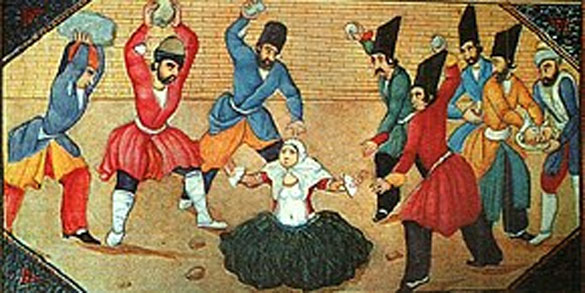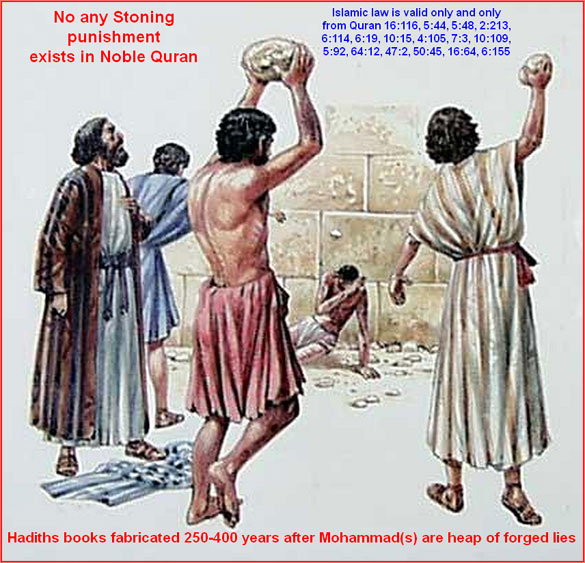
By S. Arshad, New Age Islam
19 February 2021
The issue of the punishment for adultery is debated by the scholars and jurists of Islam. A majority of jurists and scholars support Rajam (stoning) as a punishment for adultery. Their opinion is based on some hadiths which prescribe death for adultery. The stoning of a married young man of the tribe Aslam called Mayiz Aslami at the order of the holy Prophet (pbuh) is produced as an example.

But there is no verse in the Quran that prescribes Rajam (stoning) for adultery. There are some hadiths that say that the verses prescribing Rajam existed in the Quran in the earlier period of revelation and the holy Prophet (pbuh) ordered Rajam for adulterers according to the injunction of the Quran. Later the verse on Rajam was abrogated. The hadith on revelation of the verse on Rajam is as follows:
"Umar al Khattab gave an address saying Allah sent Muhammad (pbuh) with truth and sent down the Book to him and the verse of stoning was included in what He sent down to him. We read it and memorised it."(Sunan Abu Dawood, Book 40 Hadith 4404).
Surah Nur verse number 2 prescribes hundred lashes for adultery and not stoning to death.
"The woman and the man guilty of adultery and fornication -- flog each of them with a hundred stripes". (Al Nur: 2)
Therefore, scholars of the Quran believe that the verse on Rajam was abrogated and the verse of Surah Nur was revealed later prescribing hundred lashes for adultery. A hadith in Sahih Bukhari questions whether the holy Prophet (pbuh) ordered stoning (Rajam) even after the verse of Surah Nur was revealed:

"Ishaque bin Shaheen narrated to me; he quoted it from Khalid bin Abdullah Tahani; he quoted it from Sulaiman Sheebani; he quoted it from Abdullah bin Abi Awfa; he asked if the holy Prophet (pbuh) ordered Rajam?" He replied, "Yes". He then asked, “Before the revelation of Surah Nur or after it?" He replied, "I don’t know". (Sahih Bukhari, Kitabul Muharibeen No.964)
This hadith makes it clear that the holy Prophet (pbuh) did order Rajam but whether he (pbuh) ordered it even after the revelation of Surah Nur was not clear to the person inquired of. We can infer that the holy Prophet (pbuh) ordered Rajam as long as the verse on Rajam existed in the Quran. It remains to be ascertained if the holy Prophet (pbuh) ordered Rajam even after the verse of Surah Nur was revealed.
Since the incidents of stoning ordered by the holy Prophet (pbuh) have been recorded in books of hadith without recording the historical sequence of abrogation of the Rajam verse and revelation of Surah Nur, the hadiths on Rajam are constantly quoted to justify Rajam for adultery. Extremist groups like Taliban and a section of hardline ulema too cite these hadiths to support their belief in Rajam without giving much thought to abrogation of the rajam verse and revelation of Surah Nur.

Controversial: The film has been banned in Iran though some people have been able to obtain bootleg copies
----
S. Arshad is a columnist with NewAgeIslam.com

No comments:
Post a Comment